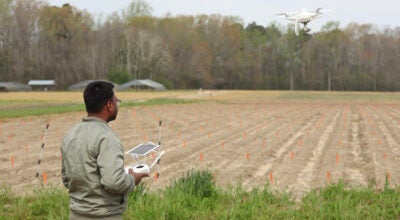Child receiving treatment after possible rabies exposure
Published 3:24 pm Monday, November 25, 2019
A 5-year-old child in Suffolk is receiving post-exposure vaccines for rabies after being bitten by a fox on Saturday.
The incident happened in the Riverview area, according to a news release from the Suffolk Health Department. The fox ran away after the incident and so could not be tested for rabies, but its behavior was consistent with symptoms of rabies, the news release stated.
“If the fox does have rabies, it will become sicker and die within a few days,” the release stated. “Traps have been set by Animal Control. In the meantime, be aware of the incident. You may wish to keep your outside pets in an enclosure or inside for 4-5 days.”
The release encouraged pet owners to contact the health department if their pets show signs of having been in a fight. People are also encouraged to report any human contact with a wild animal and avoid and report strange acting wildlife to Animal Control.
Exposure of humans to rabies occurs when the saliva of an infected animal enters the body through an open wound or mucous membrane, such as with an animal bite. An animal exposure can be a serious medical event, for which prompt evaluation and complete treatment is critical.
Rabies is highly preventable if vaccine is given early and as recommended. Unfortunately, without preventive treatment, by the time someone develops symptoms of rabies, there is no cure and the disease is fatal in almost 100 percent of cases.
The disease is also fatal in infected domestic dogs and cats that have not been vaccinated.
Dr. Nancy Welch, health director for the Western Tidewater Health District, emphasizes the following:
- If your pet has been in contact with an animal that might be rabid, contact Suffolk Animal Control at (757) 514-7855 or the Suffolk Health Department at (757) 514-4751
- Seek medical treatment promptly for any animal bite to ensure appropriate and timely evaluation and treatment. All animal exposures must be taken seriously.
- Do not approach wild or stray animals, especially raccoons, bats, foxes, skunks, cats and dogs.
- Ensure all pet dogs, cats and ferrets have current rabies vaccinations. Please consult your veterinarian, Suffolk Animal Control, or the Suffolk Health Department if you have any questions about pet vaccinations.
- Confine your pets to your property.
- Securely seal garbage containers with lids.
State law requires all dogs and cats over the age of four months to be vaccinated against rabies. For more information on rabies, contact the Suffolk Health Department at 514-4751, Suffolk Animal Control at 514-7855, or visit the Virginia Department of Health’s website at www.vdh.virginia.gov/epidemiology/epidemiology-fact-sheets/rabies or the Centers for Disease Control and Prevention’s website at www.cdc.gov/rabies.






